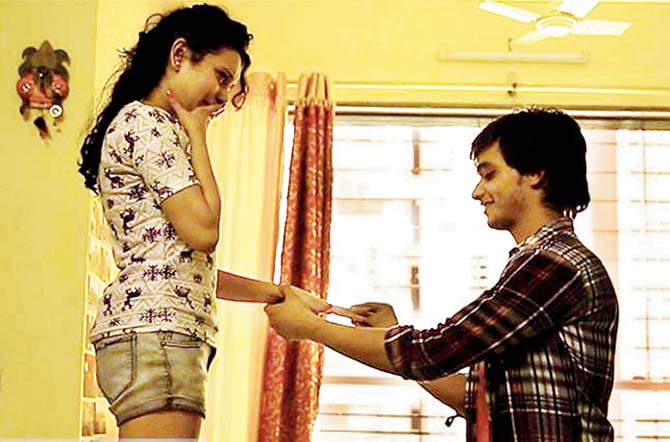The most disturbing thing about teenage crime is that you realise criminals are not born, they are made

Stills from TV show Gumraah
ADVERTISEMENT
The most disturbing thing about teenage crime is that you realise criminals are not born, they are made. These crimes are also not intentional, but happen unintentionally," says author Ira Trivedi, who has just authored a book called Gumraah, made up of 11 teenage crime stories, based on the Channel V show of the same name.

Stills from TV show Gumraah
The show, that first aired in 2012, featured real-life crimes committed by young people, most of which were sexual in nature. Trivedi, author of India in Love: Marriage and Sexuality in the 21st Century, says that since she has always been writing about youth violence, it made sense to do such a book. Trivedi travelled to a dozen cities and interviewed over 500 people to see what kind of sexual revolution Indian society was going through. "There is story in the book about a young girl who returns from the US and starts living in a small town. Where she comes from, certain things are considered normal and everyday — like wearing certain clothes, and talking in a certain way with members of the opposite sex. But these are considered ‘fast’ in India. So, she befriends a bunch of boys who rape her as they think she was ‘asking for it’," says Ira, "It was disturbing, to say the least. It reminded me of when I returned from Washington to stay in Indore and everything I did was frowned upon."

Gumraah’s stories deal with multiple emotions — jealousy that a ‘fat’ sister feels towards her more ‘attractive’ sister which leads to her killing her; a stalker who burns his object of desire’s sister; a girl who gets pregnant and her parents hide her away; and four kids who kill their bully, among others. As Trivedi says, "During my research, I realised that children from the age group of 17-21 are most susceptible." Does the nature and brutality of crime differ from caste and class? "There is no association to caste and class, and it’s only about the vulnerability of young people. Most crimes are committed by displaced youth who were put in situations that were uncomfortable or alien — a young woman who moves from the US to a small town in Haryana, a boy who starts going to a new school and gets into bad company, a boy who turns into a rapist because his father abuses him. Behind every teen crime, there is a heart-breaking story of abuse," explains Trivedi.

Ira Trivedi
A common threat is that most crimes are committed by children of well-to-do families. These are children going to ‘good schools’, and spending time in what we consider "respectable" surroundings. Trivedi agrees, all the while saying that actually there is no difference. "It’s all about how they perceive the world, and for kids, it’s a lot about what kind of company they keep. At time, the worst crimes are committed by the rich." And what happens to these children in the real world? "In the best case scenario, they end up in juvenile detention centres; in the worst case, they end up dead, committing suicide or being emotionally scarred for years," she adds.
When we ask her about her aim in writing the book, she has a piece of good advice for all young women out there. "A key point that I’m stressing for young women is that they are in charge of their own safety, so be careful of all those around you, and don’t trust too easily."
 Subscribe today by clicking the link and stay updated with the latest news!" Click here!
Subscribe today by clicking the link and stay updated with the latest news!" Click here!







